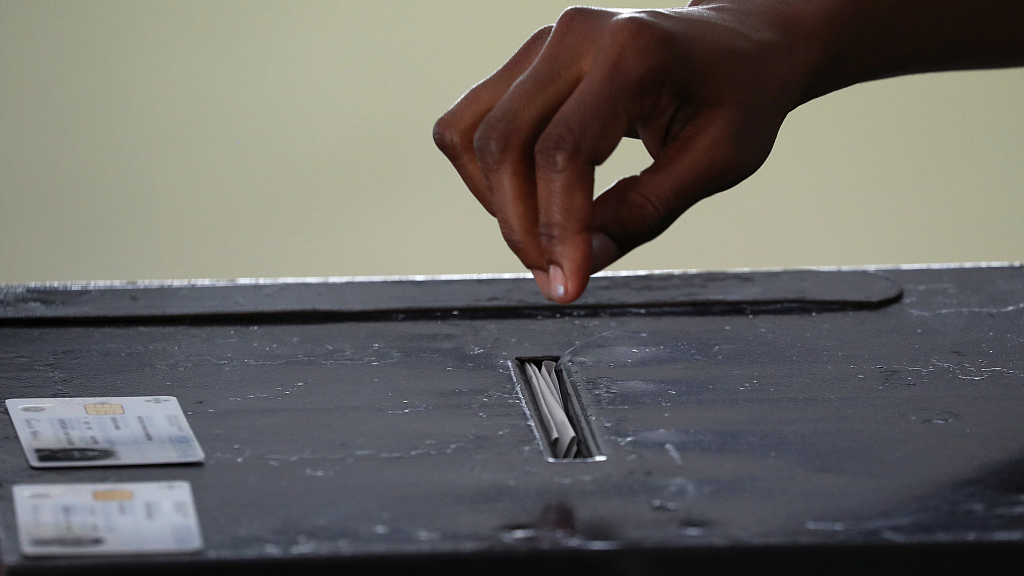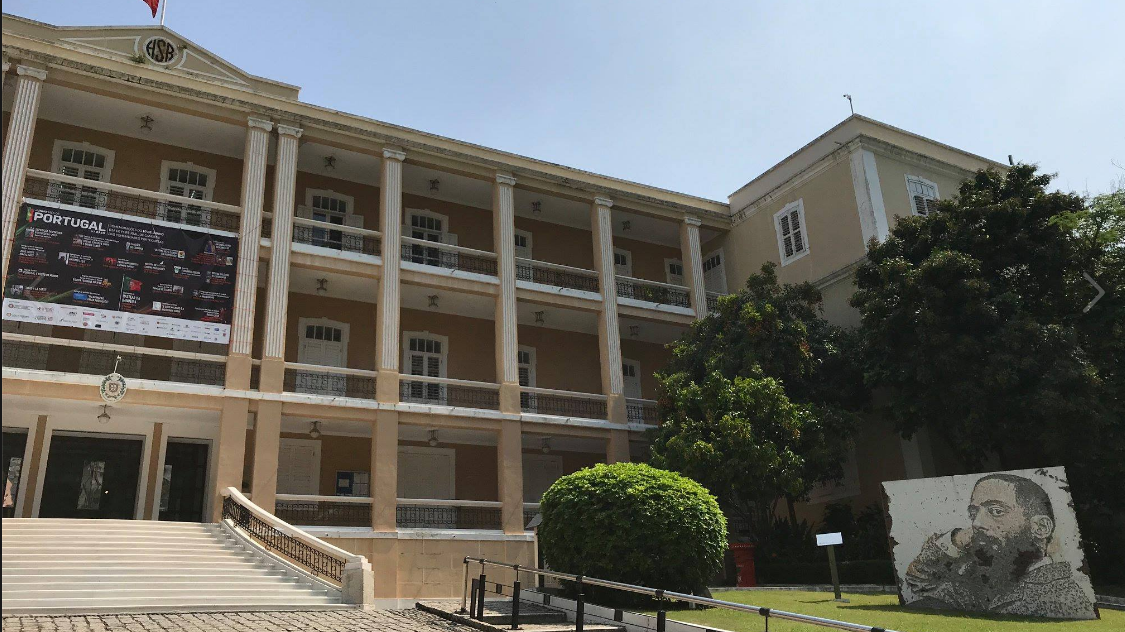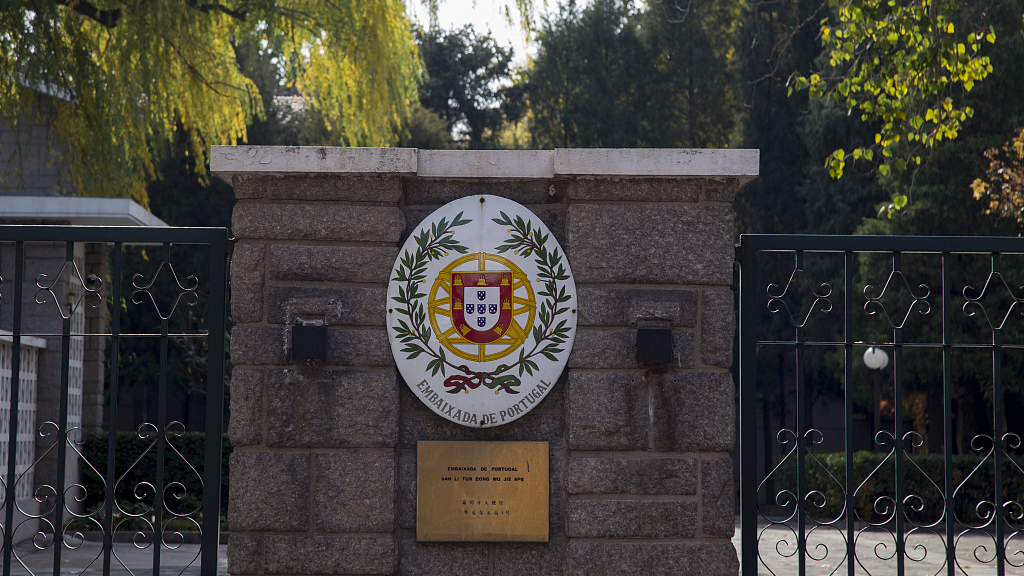
A women votes at the Lisbon University polling station during the general election in Lisbon, Portugal, on Sunday, Oct. 6, 2019/ VCG Photo
A women votes at the Lisbon University polling station during the general election in Lisbon, Portugal, on Sunday, Oct. 6, 2019/ VCG Photo
If you are a Portuguese citizen living in China and registered to vote, you belong to the second biggest group of voters outside Europe, second only to Brazil (219,275 voters), according to data released by Portugal's interior ministry.
Official information indicates that from more than 570,000 voters outside Europe, 65,618 are located in China, which means that the country has more registered voters than other traditional emigration destinations where Portuguese communities are significant, like Canada (55,272) or the U.S. (56,403).
According to the Consul General of Portugal in Macao Paulo Cunha-Alves, quoted by the news agency Lusa, the majority of that number is located in the Macao Special Administrative Regios (SAR) and Hong Kong SAR of the People's Republic of China, approximately 65,000.
To CGTN Digital, the Embassy of Portugal in PRC revealed that seven citizens voted in person in the embassy, located in Sanlitun. The official data indicates that 562 Portuguese citizens are registered in the consular jurisdiction of the Portuguese Embassy in Beijing.
In terms of advance voting, a possibility that allows nationals temporarily out of the country to exercise their voting right, 22 citizens voted in Beijing, another 22 in the Consulate-General in Shanghai, and 39 did it in the Consulate-General in Macao. In the recently opened Consulate-General in Guangzhou there were no votes casted.
A report from the interior ministry shows that even though the voting community is large, only 745 people voted by mail from China, 740 of which fall in the consular jurisdiction of the Consulate-General in Macao.
To vote from abroad, a Portuguese citizen needs to change its tax address to the country where it is residing, making voting by mail the norm. The ballot paper and the respective pre-paid envelope are sent directly to the voter's address, which then has to post it again.
The Consul General of Portugal in Macao stated that some citizens complained that they didn't receive the ballot paper and envelope, but that might have happened because they forgot to notify the authorities of a change of address. In some other cases, the envelopes might have gotten lost in the mail.
A citizen can request to vote in person in the embassy or consulate, but there is a 60 days deadline before Election Day, and this can be easily overseen.
In general, it's not only outside of Portugal that the abstention rate is high. In yesterday's elections, abstention reached 45.5 percent, meaning almost half of the citizen registered to vote didn't do it.
On October 6, the country voted on it's next government, and ruling socialist party won the election. But official voting results and final statistics from embassies and consulates are still unavailable.
Know more: Portugal's Socialists set for reelection, mull coalition options

Consulate-General of Portugal in Macao / Photo by official Facebook page
Consulate-General of Portugal in Macao / Photo by official Facebook page
"Voting makes a difference"
Despite the situation being unclear, CGTN Digital talked with four Portuguese nationals living in China about the election and the process of voting far away from home.
"Yes, I voted in these elections and in the European election too. I see voting not only as a right, but also as a duty. It's the opportunity that our democratic system gives us to express ourselves," started saying Maria Salomé.
Disagreeing with the idea that voting doesn't matter and doesn't change anything, argued by many that choose not to vote, the 25-year-old said: "We have political parties with very distinct ideological lines, voting makes a difference."
"We can't look at the political class as being uniform. It reflects society because people voted in those parties that now have a parliamentary seat. With so many different parties, so many distinct ideas, the ones unsatisfied with the action of government leaders have the opportunity to vote in another way," said Salomé, noting that enough people voting the same way can create "practical changes." Otherwise, if people are satisfied, they can show they want continuity and vote for the ones already in power.
Living in Macao for more than two years, she admits to following the political life of the country in another way. "There should be a special focus on precarious employment, health, and environment. But, I vote outside of the European Circle, so I think it's important to see improvements in the consular services and in supporting emigrants in more complicated areas."

Portuguese Embassy in Sanlitun, Beijing. /VCG Photo
Portuguese Embassy in Sanlitun, Beijing. /VCG Photo
Lack of information and lack of trust
On the other hand, Diogo Coelho wanted to vote but the lack of information made it impossible.
Having recently arrived in Zhuhai to teach Portuguese and English at Beijing Normal University, he thinks "the process is unnecessarily complicated."
After struggling to find clear information on the election website and in the Consulate-General of Portugal in Macao website, the teacher sent an email but got no answer. Only when he talked with a friend, she was able to explain how the process goes.
"There is a lack of official information and this affects negatively the right to vote of Portuguese people in foreign countries," he said through Wechat messages.
Even so, he is "carefully optimistic" about the country's future. "Economically speaking, we seem to be on the right track, but it saddens me that ideas like better trains, a more extensive train network, or having a bigger investment in the health system seem to be a thing of the past. We are happy with small improvements," said Coelho, adding that the fear of a new economic crisis is real.
In the same province, in Guangdong, lives football coach Alexandre Castro. He also didn't vote.
"I didn't vote. For two reasons: in the last two elections (Parliamentary and European) I didn't believe in any electoral program from any political party. Besides, I moved to Guanzhou recently, so I didn't know how to actually do it," he said, referring to the registration process.
About the future of the country, he confesses: "Above all, I would like to see more fight against corruption. Portugal is part of the European Union, but its politicians are the same caliber as those in South America."
For him, health, education, and employment are the areas that should be the focus of any government in power in the country.
Up north, in Beijing, CGTN Digital finds Francisco Duarte. Also a football coach, the Portuguese citizen was honest and direct, saying he didn't vote and didn't make any effort to do so.
"For me, honestly, everything will remain the same, it can change from the person or party A to B, everything remains the same," said Duarte.